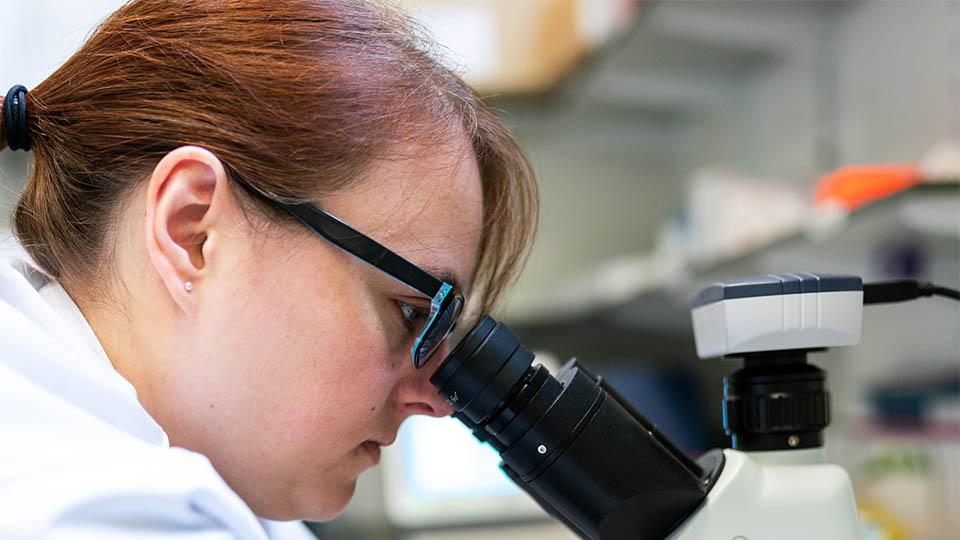
Biomedical sciences
Biomedical sciences
Biomedical science is a fast-growing sector which is already making a difference in the fields of research, medicine and health. To reflect this we have designed biomedical science courses to meet the requirements for a career in this exciting area.
We offer degrees in biomedical science, biochemistry, pharmacology, human nutrition and more which will provide you with the technical skills and knowledge you need.
Biomedical sciences undergraduate courses
-
BSc (Hons) Bio-Sciences (West London Campus)
West London Campus
-
BSc (Hons) Biochemistry (West London Campus)
West London Campus
-
BSc (Hons) Bioinformatics Genomics (West London Campus)
West London Campus
-
BSc (Hons) Biological Sciences (West London Campus)
West London Campus
-
BSc (Hons) Biomedical Informatics (West London Campus)
West London Campus
-
BSc (Hons) Biomedical Science (West London Campus)
West London Campus
-
BSc (Hons) Clinical Science (West London Campus)
West London Campus
-
BSc (Hons) Human Biology (West London Campus)
West London Campus
-
BSc (Hons) Human Genetics (West London Campus)
West London Campus
-
BSc (Hons) Pharmacology (West London Campus)
West London Campus
Biomedical sciences postgraduate courses
-
MSc Bioinformatics (West London Campus)
West London Campus
-
MSc Biomedical Engineering (West London Campus)
West London Campus
Course videos
Explore the facilities available to biomedical science students at the University of West London.
Biomedical sciences FAQs
-
What can you do with a biomedical science degree?
Doing a biomedical science degree, or a degree in pharmacology or human nutrition, can open doors to a number of careers and a range of biomedical science jobs. With a BSc in pharmacology or biomedical science you may be able to pursue a career in the NHS, medical research laboratories or academia. If you qualify with a degree in human nutrition, you could also work towards a career in healthcare, private therapy or public health.
-
Why study biomedical sciences at UWL?
There are many reasons why people choose to study with us:
- when our students graduate, 98% of them find employment or further study within six months
- our courses feature integrated work experience via internships or placements to help our students get a real sense of working environments
- we offer our graduates lifelong careers support.
-
Qualifications you need to study biomedical sciences
To get on to one of our biomedical science degrees you will need GCSE English and Maths (grade 9-43/A* -C) or Level 2 equivalents, as well as 112-120 UCAS points from level 3 qualifications. These could include:
- A Levels at grade B, B and C, or above
- BTEC Extended Diploma with Distinction, Merit, Merit
- Access to HET Diploma
Your Level 3 qualifications must include a science subject.
Jobs for biomedical science graduates
Upon successful completion of a biomedical sciences degree, you will be equipped to pursue a wide range of careers in fields such as:
- healthcare
- medical research
- forensic science
- science writing
- academia
- dentistry
- data analysis
- informatics
- pharmaceutical research
- biomedical product marketing
- ecology
- pathology
- working in the NHS.
Options can vary depending on your chosen biomedical science path. Please explore the study and career progression section of each individual course for more information.
















